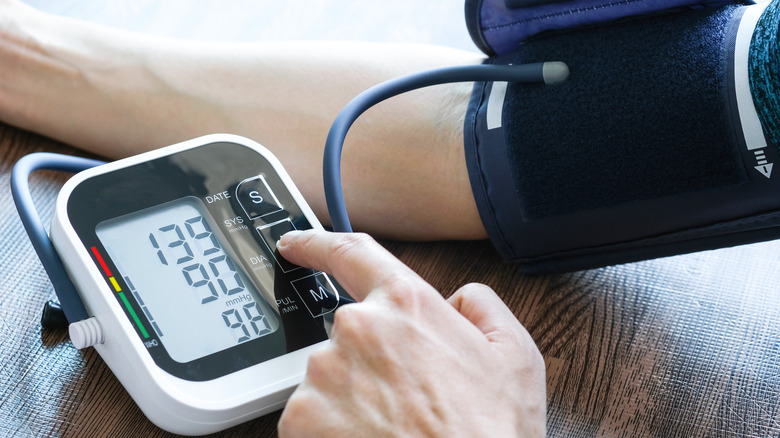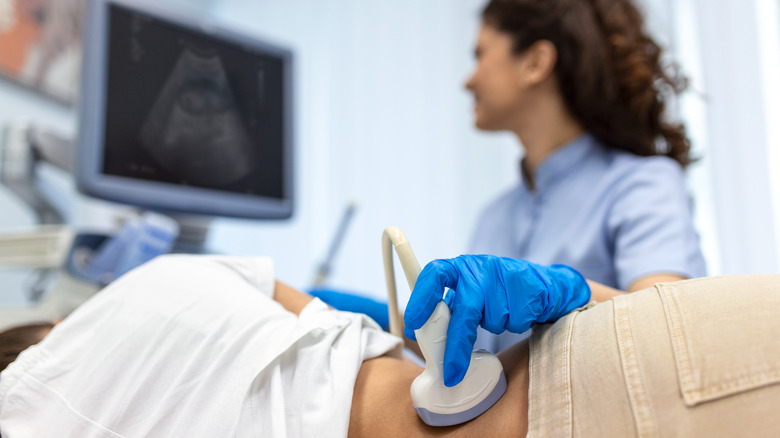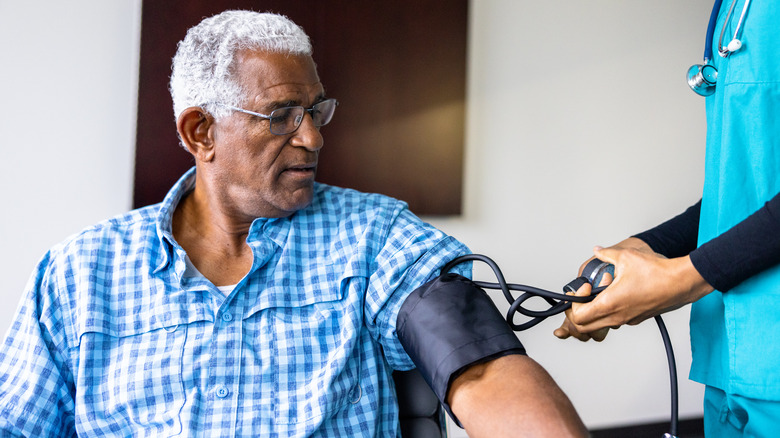When High Blood Pressure Goes Untreated, This Is What Happens To Your Kidneys
If left unmanaged, high blood pressure (hypertension) can increase our risk for various health conditions, and not just those related to our heart. Untreated hypertension can also put our kidney health at risk. Here's how.
Approximately as large as a fist, our kidneys help regulate water and electrolyte levels, support the production of red blood cells, and filter out excess fluid and waste from our blood, explains the Cardiovascular Institute of America. Having high blood pressure, however, can affect circulation and may subsequently impact our kidneys' nutrient and oxygen supply. A blood pressure reading of 130/80 mm Hg or higher is considered high hypertension, reports the National Kidney Foundation. With 45% of American adults reported to have high blood pressure, only about 24% of hypertension cases are effectively managed. By gaining a better understanding of how high blood pressure affects the kidneys, we can take measures to protect ourselves against related kidney damage, chronic kidney disease, and more.
High blood pressure can damage the arteries and blood vessels of the kidneys
If high blood pressure goes untreated it can lead to what's known as renal artery stenosis, in which increased pressure on the arteries causes them to compress or harden, thereby restricting blood flow to the kidneys (via Cardiovascular Institute of America). According to the American Heart Association (AHA), damage to the kidney's arteries prevents the organ's blood vessels from doing their job of maintaining balanced levels of fluids, salts, acids, and more within the body. Additionally, all that added pressure on the blood vessels slows our kidneys' filtration rate, which can increase the risk of fluid retention or the buildup of waste products in the blood, such as creatine. Normally discharged from the body through urination, having greater levels of creatine in our blood means that the kidneys aren't working as they should be, explains the Cleveland Clinic. Because of creatine's effects on the kidneys, those with kidney issues should not take creatine supplements.
A person with untreated hypertension may also experience proteinuria, an excess of protein in one's pee. While not considered a disease on its own, proteinuria is an indicator that the kidney's filtration structures have suffered damage and are allowing too much protein through into urine.
Having untreated high blood pressure can increase the risk of chronic kidney disease
Eventually, unmanaged high blood pressure may result in chronic kidney disease (CKD), in which kidney function progressively breaks down. According to the National Kidney Foundation, roughly 20% of adults in the U.S. with hypertension are thought to be affected by CKD. Because the disease is often incurable, treatment plans focus primarily on symptom management, lowering the risk of complications, and slowing disease progression (via Mayo Clinic). Because hypertension and kidney disease often feed into one another, blood pressure-lowering medications may be prescribed.
In a 2022 study published in Kidney Research and Clinical Practice, researchers found that having a systolic blood pressure reading of at least 130 mm Hg or a diastolic blood pressure reading of at least 90 mm Hg put untreated hypertension patients at greater risk for CKD, and that clinical interventions should be explored once patient blood pressure readings reach these levels. If you'd like to learn more, here's an in-depth breakdown of chronic kidney disease causes, symptoms, and treatments.


